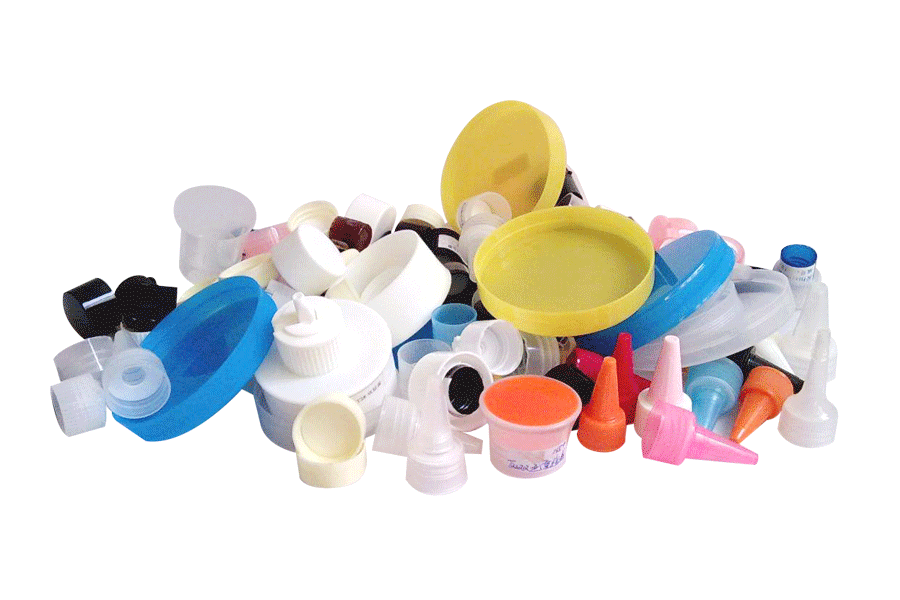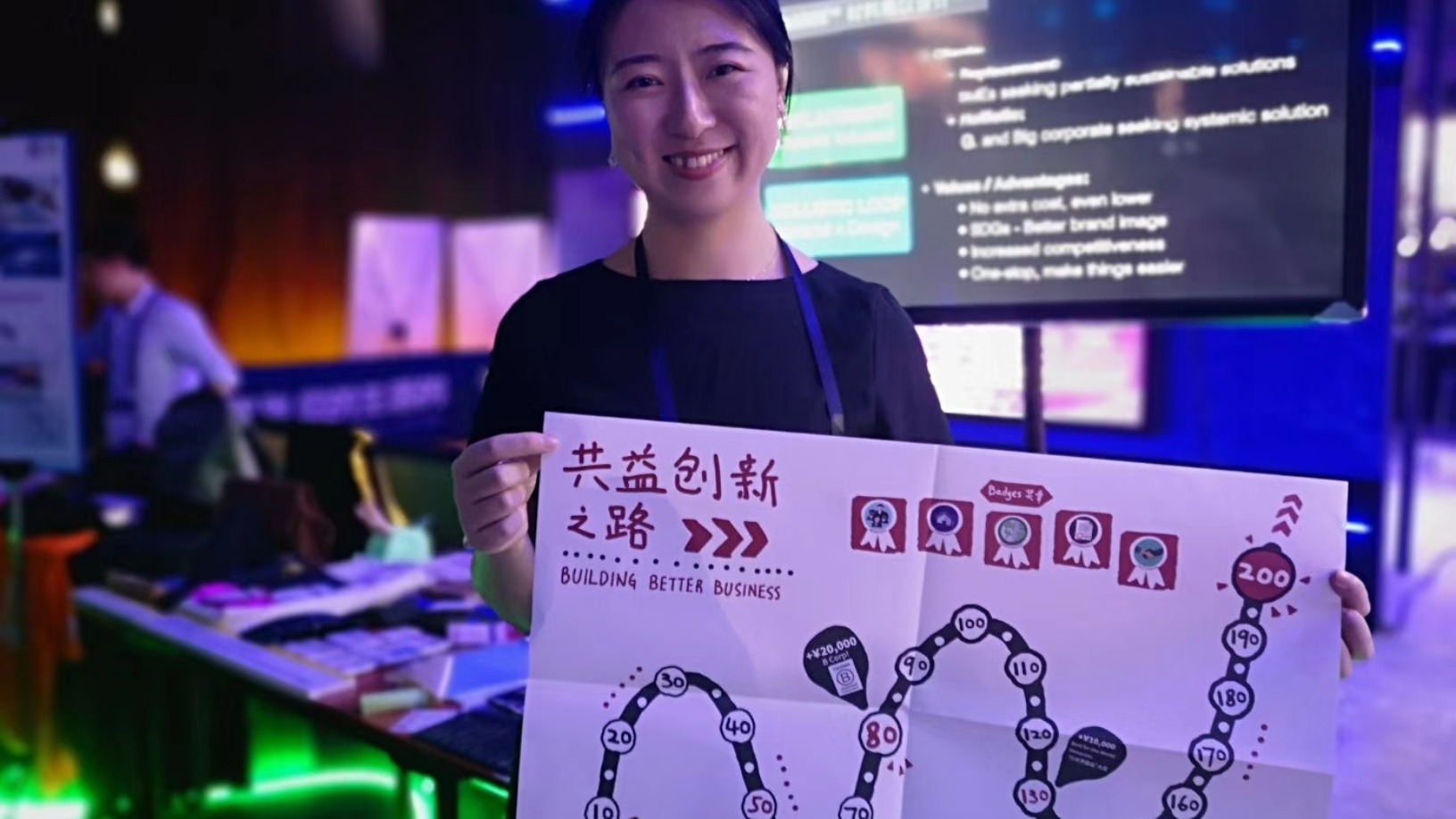While pursuing her master’s degree in material chemistry at the University of New Hampshire in the early 2010s, Lei Yuxi was also passionate about architectural design. Indeed, she had planned on a career involving connecting materials with design to promote sustainability. Unsure how to make that happen, Lei thought about working first for a company in the field.
“But before I founded NANOxARCH in October 2018, there was no such businesses in China,” Lei told CompassList in a recent interview by video conference.
Aiming at reshaping architectural spaces toward sustainability throughout their full lifecycle, Lei’s startup provides over 1,000 products made from more than 100 kinds of sustainable materials, depending on clients’ budgets and requirements.
While there are some companies in China producing sustainable products with recycled trash, nearly all of them specialize in just one single type of material, such as PET plastics, she said.
Sustainability for all
In addition to sustainable materials and products, NANOxARCH’s offerings include sustainability-themed events in spaces that they renovate in sustainable ways.
In October 2019, NANOxARCH partnered with Suzhou Design Week to set up an exhibition named Re • Co: Sustainability Odyssey, and a pop-up shop on the site. The spaces, installations and sale items were all made with 100% locally generated upcycled and recycled trash, including that left over from the previous year’s event.
Besides learning how waste could be transformed into a part of everyday life, visitors could purchase items like a volcanic-rock candle holder or cat litter made of coffee residue, at prices ranging from RMB 20 to 300.
Building a temporary sustainable space was far from enough for the NANOxARCH team. They also hoped to weave the concept of sustainability into the whole lifecycle of the exhibition project. Thus, all the installations were “adoptable” by visitors, for non-profit purposes, on behalf of local communities, schools, social corporations and businesses. The waste-built space would be kept for good and showcased as a sample room throughout the city of Suzhou to promote sustainability in the wake of the event.
In addition to brands and businesses that value sustainability or who want help incorporating sustainability into their brand image, NANOxARCH also targets all other businesses desiring only lower-cost products and more brand exposure.
Lei stressed that is much easier to communicate with the first two types of business, but that it is very important to work with the third group. “Even if they don’t care about sustainability at all, they can still contribute,” she said. For her, cooperating with such companies is also a process of educating them about sustainability. With such efforts, “we can expect to move them into the first two groups.”
Currently, all of the company’s clients come from top-tier cities in the three major conurbations, with Beijing, Shanghai and Shenzhen, respectively, as the core. According to Lei, although businesses and governments in these metropolises are more eco-conscious in general, NANOxARCH would also like to work with clients in tier-3 and -4 cities, boosting sustainability practices locally.

Targets supply to lower costs
According to a report about sustainability development in China published by the dairy group Yili in 2018, over 90% of Chinese consumers have an awareness of sustainability. However, 77% believed that sustainable goods were offered at exorbitant prices. Lei thinks that sustainability doesn’t necessarily lead to higher prices, and NANOxARCH has its secret weapon to make this work.
The startup has built a sustainable materials and products database, the first of its kind in China. All of the 1,000-plus recycled/upcycled materials and eco-friendly/healthy new materials (as well as products made from them) are competitive in terms of cost, quality and appearance when compared with other traditional but unsustainable options.
“More importantly, the database enables us not only to find the best application scenarios of these yet-not-popular materials but also to reach out to enterprises responsible for every step in the whole supply chain, from material design and processing to product manufacturing, packaging and recycling,” said Lei.
NANOxARCH sticks to the rule of using locally generated materials to reduce both transportation cost and carbon footprint. “With the growing database, we can easily figure out the most suitable materials for clients based on their budgets and other requirements, and then reach out to local suppliers and manufacturers depending on where the clients are based,” said Lei.
She noted that demand for sustainable products in China in past years has been very low, and the products usually cost more to produce, which explains their higher prices in the market. There are only a small number of enterprises working in the field. Its database enables NANOxARCH to link the disconnected dots on the supply chain, helping the startup to bring cost under control.
When asked about cost of the recycled materials she has used to design and produce items, Lei pointed out that it depends on client demand. To help better manage costs, NANOxARCH first requests that the client furnish their budget, so Lei and her team can come up with affordable solutions tailored for the client.
“In some cases, we have managed to make the cost lower than traditional options,” she said. “Our aim is to ensure that the prices of our products are no more than 20% higher than clients’ unsustainable options.”
Increased awareness and demand will bring more players into the field, contributing to a mature supply chain. Economies of scale will also bring down the cost of recyclable products, which in turn will attract more consumers to drive up demand. This way, a positive cycle will take form.
Covid-19, a positive for sustainability?
Lei has confidence in the rise of awareness of sustainability in China. The country is now trying to accelerate a garbage-sorting campaign nationwide and this policy push will encourage more companies to jump into the business of trash sorting and recycling, further contributing to a mature supply chain.
The Covid-19 pandemic, she said, has had a positive impact in some ways, as the crisis has forced many to rethink the relationship between people and nature, while realizing the importance of health. And so 2020 could be the year when China is finally ushered into an era of sustainability, she added.
In no rush to generate revenue, Lei decided to give NANOxARCH one year to test the water when she founded the company. With no successful business cases for reference at that time, her aim was to figure out the most pressing requirements of prospective clients and the most efficient ways to work with them.
Despite not having a committed marketing team or budget, the young startup landed 15 clients in its first year, thanks to word of mouth and client referrals. NANOxARCH broke even last year, on a revenue of close to RMB 1.5m.
During the first year, Lei had identified sustainable office interior decoration as the most common demand among prospective business clients and she decided to launch a turnkey package product to serve that need.
“All the materials for furnishings we use are not only sustainable but also healthy, and most of them are completely free of formaldehyde and VOCs,” said Lei. “Besides addressing health concerns, our package can also offer the extra bonus of a brand image that embraces sustainability.”
The turnkey solution was also created with reducing costs in mind, especially for its SME clients that tend to have tight budgets, as such a solution takes less than a week to put in place, compared with two to four weeks normally, she said.
Superuse Studios partnership
The current NANOxARCH’s team is very lean. Lei said she is the only one working full-time. However, the company has a talent pool that enables it to quickly set up a temporary team comprising 2–12 professional material and product designers, depending on the project size.
Lei had planned to build a full-time team at the beginning of 2020 to scale up the business of customized sustainable interior decoration. Because of the Covid-19 crisis, she’s had to postpone that plan until the latter half of the year. Meanwhile, the startup will begin to seek financing for its scale-up especially for the office decoration packages.
NANOxARCH struck a strategic partnership with the China office of Superuse Studios, a world-renowned pioneer in the field of sustainable spatial design, last year. Under the agreement, the two parties will regard each other as preferred providers of recycled materials and space designs.
In February this year, when China was hard-hit by Covid-19, NANOxARCH and Superuse Studios China initiated a co-branding project to further promote sustainability. Also involved are two strategic collaborators, Another and TAS, also young Chinese startups working on sustainability-themed communications and community-based economics, respectively.
“Working together, we will practice sustainability on a larger scale, from planning sustainable parks to fostering local economic development in a sustainable way,” said Lei. “We will also kick off a Sustainability Themed Carnival in China, where interactive activities will be designed to help the general public learn about the UN’s Sustainable Development Goals.”











